
This is what happens in your business when you have a bad hire
A bad hire can be a costly affair. Recruiting the right candidate can be exhausting. Keep your eyes on the main goal: getting the right employee who adds value to your company.
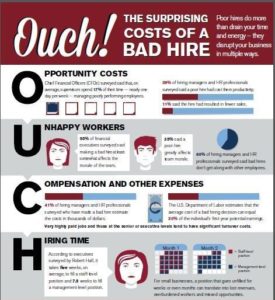
“We can never fall short when it comes to recruiting, hiring, maintaining and growing our workforce. It is the employees who make our organization’s success a reality.”
― Vern Dosch, Wired Differently
Hiring the right employee for your business is not less than a tedious task. However, there is stiff competition for top candidates these days. Companies struggle to find and keep quality talent. Even though HR professionals use many different hiring formulas to hunt down the best person, sometimes you may end up with the wrong hire. Nothing is more disappointing than realising the person you thought would be your next superstar isn’t even a one-hit-wonder.
A bad hire can not only a challenge and time-consuming issue but also cost the company a lot of money and adds pressure to the process. It becomes one of the most expensive mistakes that can have a devastating effect on your business. Consider the impact a bad hire can cause you in the following four areas of your business.
Hiring bad eggs can impact your ability to hire top talent in the future.Greg Brockman, Stripe CTO
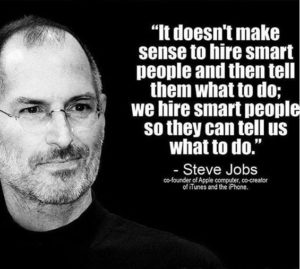
The impact a bad hire can cause in your business
- Decreased productivity
If a person narrated in a CV is not who the candidate really is, they may not be able to perform well in the job role that you are hiring them. It could harm productivity, as other employees need to work harder to meet the targets and deadlines, damaging group morale. Bad hires can drive the top employers away, often right into the hands of the competition, taking the skills, knowledge and expertise that you have helped develop with them. A bad hire can also lower the standards of the rest of the team.
- Impact on customers
Bad hires can’t seem to clasp their responsibilities in the job role. Even if they can, they will always look for shortcuts, or making customers’ dismay due to their lack of customer service. The cost of acquiring new clients is way more expensive than keeping existing customers. One wrong interaction with a bad hire may cause the customers to walk away. Eventually, your brand and reputation will suffer.
- Cultural imbalance
Having cracks in the culture, because other members don’t add value to the team, can harm the whole workforce.
- Ensure that the new hires have the right experience and qualifications to meet the requirements of the role.
- Assess how they will fit in with your company’s culture and your colleagues.
Both these points should be at the top of your list of priorities when you make the hiring decision.
- Time Spent on Performance Management
A bad hire will suck up the time and focus of an employer. Instead of coaching and developing other employees, he gets sucked into an endless cycle of having to listen to complaints from others, gives corrective feedback, micromanaging, handing out discipline, and eventually get dragged through a painful disciplinary process. Trying to get a wrong hire to meet even minimum expectations is like playing management “whack-a-mole.” One problem may temporarily go away, but it soon gets replaced with another issue.
“If you make a hiring mistake, make the change quickly. Don’t ignore problems. Don’t assume it will get better.”
― Ziad K. Abdelnour, Economic Warfare: Secrets of Wealth Creation in the Age of Welfare Politics

- Reputation
Bad hires, especially those who are communicating with clients, can damage relationships if customers don’t get treated well. Relationships are not easy to rebuild once the trust has broken. Companies have to make sure that employees representing their business can enhance or maintain their reputation and goodwill, not harm it.
There is also internal reputation management that you need to consider. When a firm recruit and then subsequently keeps a lousy hire, colleagues can question the top-level management’s ability to make smart decisions. It can injure the relationship between the administration and the staff in a business.
- Financial impact
Lastly, let’s not forget the money. A hiring mistake can cost a business three times the person’s salary, due to the money spent on training, lost productivity and increased staff turnover.
So, whether you are hiring an entry-level employee or senior executive, the cost of a bad hire is high. It can bring down your team, manager, or the whole organisation. While there are no guarantees, taking more time to cast a wide net and doing your due diligence in finalising employees is well worth the effort and will minimize the chances of a bad hire.
“If you can hire people whose passion intersects with the job, they won’t require any supervision at all. They will manage themselves better than anyone could ever manage them. Their fire comes from within, not from without. Their motivation is internal, not external.”Stephen Covey
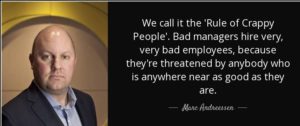
Reach us for your recruitment needs at Hand Phone: +91 7795547089 or Email us at team@bssrecruit.com.

Try these seven tips to improve your candidate experience
Improve your candidate experience with the positivity that he may reciprocate with the clients he manages.
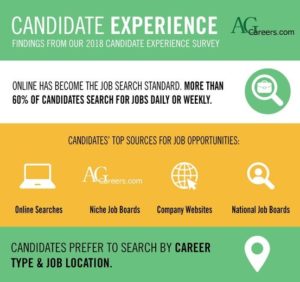
“You can have the best strategy and the best building in the world, but if you don’t have the hearts and minds of the people who work with you, none of it comes to life.”
― Renee West, Luxor and Excalibur Hotel
A strong and highly skilled employee base can give your firm an advantage over your competitors, generating more business and higher profits.
When it comes to recruiting, you can’t pour every ounce of your energy into wooing that one perfect applicant. It’s essential to treat all of your candidates well. Great candidate experiences can reflect greatly on your company, which will increase the chances of people wanting to work for you. Improving the candidate experience is crucial to attracting a quality pool of applicants and Increases the percentage of successful, long-term hires.
How can you generate a positive and Improve your candidate experience, which can have a tremendous ripple effect on your business and your talent pool? Here are some ideas to consider.
“We can never fall short when it comes to recruiting, hiring, maintaining and growing our workforce. It is the employees who make our organization’s success a reality.”
― Vern Dosch, Wired Differently

How to generate a positive and Improve your candidate experience?
- Let them know how to apply
Be clear on how you want candidates to apply for the position and what they need to send you in response to your post. If you want a cover letter, say you want a cover letter and let them know exactly where to send it. Mention like ‘to apply for this position, please send a cover letter and your CV to apply@companyname.com’.
- Don’t make the application process too long
Application processes which are too long often block people from applying for the job position. Your company may not be the only one a candidate will consider so make it a positive experience. Only ask for important information in the application process as you don’t want candidates to abandon the application process halfway through.
- Acknowledge every application received
Not every CV you receive will be someone of interest. However, it isn’t an excuse to throw their CV to one side and forget about them. You can mail them and offer them some insight into why the role isn’t right for them. It reflects greatly on you and your company. If you don’t have time to send feedback to them, then a simple email saying they have been unsuccessful will be easy and much better than nothing.
“Hiring should be like dating. A great marriage does not happen in a 30 minutes interview.”
― kamil Toume
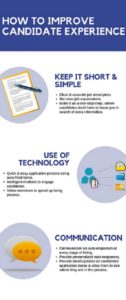
- Assess applications quickly
If you are serious about finding someone great for a position, you need to stay on top of things. If you wait more days to look through applications, you may find those candidates snapped up by your competitors by the time you make your decision to meet them. Set yourself sometime every day to go through the CV’s sent through that day.
- Let candidates know your recruitment process
You may know about your hiring process, but your applicants don’t. Every recruitment process is different. So, ensure they know the details of how long the interview will be, how many stages you are conducting, and where it will be conducted. Letting the applicants know what the recruitment process will be will reduce the number of people who pull out of the process.
- Provide feedback to rejected candidates
You cannot hire everyone, but it’s beneficial to let them know why they didn’t make it possible. Calling them and let them know why they haven’t been successful doesn’t take a long time. It gives the person with valuable insights on what they can do to improve the next time. Adding value to the hiring process through feedback creates a recruitment process which is appreciated by everyone involved.
- Make sure you have a smooth onboarding process
The recruitment process doesn’t stop once the right person has signed their contract. The nurturing process starts through their current notice period – keep in contact with them, so they don’t change their mind. Look after them when they start so that they feel welcome and make sure they seamlessly become one of the team.
Top applicants want to work with cutting-edge companies. So, job seekers will be expecting a higher level of engagement and convenience at every stage of the application process. What’s clear is that if you keep your candidates happy, your company will be even more pleased.
“If you hire only those people you understand, the company will never get people better than you are. Always remember that you often find outstanding people among those you don’t particularly like.”
― Soichiro Honda
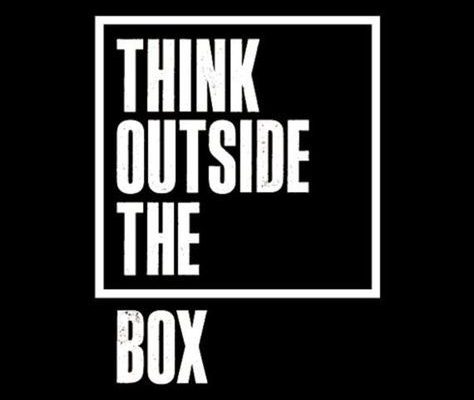
The most overlooked solutions to boost creativity in the workplace
Boost creativity in the workplace to accelerate the productivity of the employees.
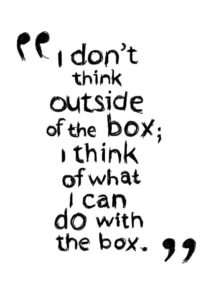
The most overlooked solutions to boost creativity in the workplace
For innovation to flourish, organizations must create an environment that fosters creativity; bringing together multi-talented groups of people who work in close collaboration together — exchanging knowledge, ideas and shaping the direction of the future.
—Linda Naiman
Creativity is now one of the top skills most workplaces are looking for in their employees. The creative talents of employees are the key to higher levels of engagement, happiness and fresh business ideas. In most companies, people with creative mindsets are missing. You can’t force creativity to happen, but you can develop a creative workplace. It is the reason most of the employers encourage their staff to learn new skills or get involved in new leisure activities. It establishes a workplace environment that stimulates creativity, which motivates the workers to do their best for their company.
Whether you consider yourself as creative or not, you should create room for improvement in your workspace. In this article, we included a few tips on how to spark creativity in your company.
Creativity is the power to create something new, to reach deep into our subconscious for that “aha” solution. Sometimes it happens in a nanosecond, and sometimes that solution can take a lifetime to reveal itself.
—Linda Naiman (People talk Magazine Spring 2004)

Why is creativity so important?
The most rewarding impact of creativity is it can unlock more meaningful results. When you keep working the same way you always have, there’s no way to take risks and find new ways to execute tasks, which eliminates the possibility of creativity in the workplace. Here are some ways to help your team feel inspired.
How to spark and boost creativity in the workplace
Establish a company culture
Work culture plays a vital role in developing creativity. When workers get reasons to be excited to come to work, you’ve succeeded in creating a tremendous company culture. On the other hand, dysfunctional company cultures can severely impact creativity and overall mental health of the employee. The excellent way to establish a company culture to spur creativity is just to give your employees a purpose for their work. From purpose, a culture blooms.
Let your employees take risks and experiments
Cultivate a culture that is ready to take risks, which also rewards new creative experimentation. Most of the time, employees aren’t bringing new solutions or ideas because there is a fear of making a mistake. Employees need guidance support and allowance that they can fail in the pursuit of creation.
One of the ideal ways to implement this is by being open to suggestions and feedback from your workforce or fellow employees. Sometimes this means having an open-door policy or creating an anonymous space for people to share their ideas.
Look to co-workers with great emotional intelligence
The workplace can be a great place for sharing knowledge. There’s an excellent opportunity to learn various skills and garner new knowledge from your peers in the firm. Encourage your teammates to share what they know with everyone on the team.
It can help workers discover new interests and spark new creative pursuits that they can bring back to their role. It’s also essential to develop your emotional intelligence and look to others who display high rates of it for guidance.

“Good teams become great ones when members trust each other enough to surrender the ‘me’ for the ‘we.’
– Phil Jackson create a space for meditation and self-reflection
When the busy schedules strike, it’s easy for people to start getting too focused on their work and forget about the bigger picture. During times like these, creativity is lacking. During this time, you should let them step out of the madness for a few mindful moments daily.
Getting people into the routine of conducting self-reflections can help them centre themselves and avoid the stress that limits creativity. Just a simple check-in with you does wonders. Cultivating a daily schedule for meditation can take this to the next level. Emptying the mind is an excellent way to fill it.
A relaxed, positive workplace atmosphere is more conducive to innovative thoughts than a tense one. People need specific tools to think creatively, which includes keeping their knowledge and expertise up-to-date. With the support and the right management approach, you can not only help your staff enhance their contributions but also make yours a better workplace.

“You can’t use up creativity. The more you use, the more you have”
– maya angelou
Reach us for your recruitment needs at Hand Phone: +91 7795547089 or Email us at team@bssrecruit.com.
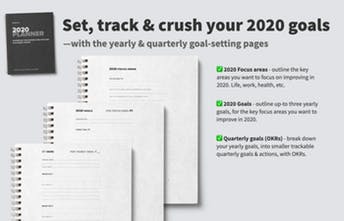
The six key tips to successfully achieve your 2020 goals
Successfully achieve your 2020 goals with a simple guide in this article.

“You have to set goals that are almost out of reach. If you set a goal that is attainable without much work or thought, you are stuck with something below your true talent and potential.”
— Steve Garvey
Setting personal or career goals are not some form of magic that will immediately make your dreams come true within a few seconds. But they can make your life more purposeful and give you something to look out for.
Successfully achieve your 2020 goals is not about writing impractical wishes about what you want for yourself; it is about challenging yourself to achieve more. When you create reasonable goals that are achievable in a healthy, allotted time frame, you are more likely to stick with them long-term.
Sometimes, you may face challenges setting or achieving the goals that you have set already. If it is your current situation, continue reading. We will share with you tips on how you can set your personal goals.
“All who have accomplished great things have had a great aim, have fixed their gaze on a goal which was high, one which sometimes seemed impossible.”
— Orison Swett Marden

How to effectively Successfully achieve your 2020 goals
- Think about what you want
It is essential to think about what you want in life or what your life goal is. When you know what you want ultimately, you can go ahead and set big-picture goals or life goals.
Asking yourself these queries will help you narrow down your ultimate goal:
- What are those things that can make me happy?
- Why do they make me happy?
- What are the things I should stop doing to achieve ‘my happiness’?
- What are those things that I do already that make me happy?
- How can I do more of those things that make me happy?
At this stage, it is right for you to note down everything that you love to do, and are important to you.
- Set ‘BIG PICTURE’ goals
When you know what you want ultimately, then you can now go ahead and set big-picture goals or life goals. Note down what is that one thing that you need to accomplish within the next five years. It provides you with a clear view of the different steps you need to follow to reach there.
- Set smaller goals
Once you have successfully set your big goals, the next thing to do is to set smaller goals that will assist you in reaching your long-term goals.
You can cut down your goals into smaller actionable ones, and break it down into the following:
- 5-year plan goals that will help you achieve the big-picture goal.
- A one-year plan goal.
- Create a six-month plan goal.
- One-month plan goal.
- Weekly goals.
- Daily to-do-list.<
- Set Priorities
You must set priorities when you set goals, especially if you set multiple goals. You should give each target a priority to Successfully achieve your 2020 goals.
Setting priorities will help you stay on top of all your goals and will prevent you from being overwhelmed by setting several goals. It will also offer you a sense of direction in your goals.
If you have too many goals, you should set a preference scale for your goals and how you want to achieve them. Some goals should come before others according to their priority.
“A goal without a timeline is just a dream.”
— Robert Herjavec
Make an Action Plan
The next step is to have an action plan that will help you Successfully achieve your 2020 goals that you set. If you have set a big goal, you must write down the steps so that you can re-visit it when you are confused.
- Focus on Your Action Plan
Setting a goal is one step and achieving it another. Once you make the plan, you need to try your hands at achieving it. For that, you need to make certain processes on your action plan. Without following those processes, it may be difficult for you to accomplish the ultimate goals.
Once you made an action plan, try and build a reminder to keep your soul on track. It is great to make out time to review your goals.
- Keep Track of Your Progress
Noting down your goals and the processes of achieving them will aid you to keep track of your progress. Re-visiting your goals and the methods will help you take note of your signs of progress towards the successes. Knowing that you are moving forward with your goals will encourage you to work harder.
Sometimes keeping track of your progress may not be easy, but you can even set up a process that will help you track your progress.
By setting goals, you will be able to make conscious choices on your career path. You can always adjust your plan if you need any changes, but the key is to give yourself a road map for success.
2020 is your year. So, set your goals, advance your career, deepen your knowledge, and find inspiration.
“Focused, hard work is the real key to success. Keep your eyes on the goal, and just keep taking the next step towards completing it. If you aren’t sure, which way to do something, do it both ways and see which works better.”
— John Carmack
Reach us for your recruitment needs at Hand Phone: +91 7795547089 or Email us at team@bssrecruit.com.

The ultimate guide on why should you consider taking Sabbatical over a career break?
Sabbatical over a career break is a fresh perspective from the regular routine to turn back and redo your career in a better way.

There was a time taking a career sabbatical was exceedingly rare. It was an experience constrained only for tenured professors after working years at a university. However, today, sabbaticals are becoming more and more common. Many employees take a sabbatical in between jobs to travel, spend time with family or simply relax.
What is a Sabbatical over a career break?
A Sabbatical over a career break is a fresh perspective on your life and work, often while taking on new challenges, and exploring new frontiers. It is another start in your career, which let you gain experience in an entirely new field. When you take a career break, you cannot join back to your current company. You need to end the working relationship before stepping out of your company for the break.
What is a Sabbatical?
A sabbatical is a period away from workspace with the security of returning to their job. The time allowed depends on the company you are working and may only be accessible to employees at a certain level in the organisation, such as senior managers or full-time staff. It is an ideal option for those who may be planning to return to the same job or field of work.
What are the reasons to take a sabbatical?
The reasons for taking a long leave or Sabbatical over a career break may differ according to a person’s personal and professional situation. Some of the common causes are –
- People who long for travel and adventure
- People who want a change as they are dissatisfied with their current routine
- People who want to take a break to recharge and unwind
- People who want to spend time with family
- People who want to train for a new career
The extended time of sabbaticals provides a great way to explore the options above.
Paid VS Unpaid Sabbaticals
A sabbatical usually is an agreement with your employer with the condition that you join back to your job after the leave. People often mistook a career break as a sabbatical. But, during the sabbatical, even in case they quit their job; the employee remains employed.
There are two main kinds of sabbaticals – paid and unpaid.
- Paid
During a paid sabbatical, the employee receives the full pay or a portion of their salary. Usually, companies grant paid sabbaticals to staff in leading roles for shorter periods of time. A paid sabbatical is obviously a Holy Grail. Yet, remember that there can be fine prints and obligations coming with a paid sabbatical.
- Unpaid
More commonly, sabbaticals are unpaid leaves of absence. The firm keeps the job on hold and commits to offering the same or equivalent position after the sabbatical return.
Benefits of Taking a Sabbatical
Even though there are several considerations worth taking into account before opting to go on a sabbatical, there are a lot of advantages to it as well. Most of the people who have taken sabbaticals come to treasure the memories they have made travelling, volunteering or pursuing their personal passion projects. Some simply take time off to relax or take care of personal matters, which leave them feeling revitalised and ready to take on new challenges at work upon their return. Others use the time to prepare for an entirely new line of work, honing the skills they need to secure their dream jobs. And still, others emerge from a sabbatical with a more profound understanding of who they are and what they want out of life.
When work-life gets extremely busy, finding time to unwind and relax may the last on your list of priorities. Sabbatical leave is an excellent way for you to have a long break away from work life. It is also an award for your hard work and years of service. Just like farm fields that need a rest, your brains do need some time to relax as well.
Sabbatical over a career break can not only be a unique and fantastic opportunity to relax and enjoy but also make you ready for the next phase in life. It is excellent for you to have some time away from the tight schedule and let your mind wander away from the work stress.
We hope that this Ultimate Sabbatical Guide prepared you well with everything you need to know about sabbaticals.
Reach us for your recruitment needs at Hand Phone: +91 7795547089 or Email us at team@bssrecruit.com.

Find out how a positive mindset in the workplace can help you achieve your goal
A positive mindset in the workplace is a necessity for career growth. A Positive mindset in the workplace can be a motivation for all in the workplace.
“Being positive is like going up a mountain. Being negative is like sliding down a hill. A lot of times, people want to take the easy way out, because it’s basically what they’ve understood throughout their lives.”– Chuck D
A positive attitude can help you to deal with life’s daily drudgeries more effectively and efficiently. It can improve your confidence, enhance your mood, and reduce the likelihood of developing conditions such as hypertension, depression and other stress-related disorders.
You can describe positive thinking as positive imagery, positive self-talk or general optimism, but these are all still general, ambiguous concepts. If you are effective in thinking and more positive, you will get the right direction to achieve the goal or purpose of your life.
Want to know how positive thinking can help you achieve the best in your life? Dive into the blog to get it.
“Once you replace negative thoughts with positive ones, you’ll start having positive results.”
– Willie Nelson

How a positive mindset in the workplace can help you achieve the best in your life?
- A positive mindset in the workplace helps Identify the Right Goals
To achieve success at work or in life, you must first identify your goals. It is where positive thinking plays a big part; right from the very beginning. The way you assess your strengths and weaknesses determine your goals for life.
A negative attitude can make you a loser even before you have started. With a negative attitude, you will choose all the wrong kinds of goals, and you will never feel strong enough to aim higher. Positive thinking makes you feel confident from within, which helps you opt the right directions.
- Positive Thinking helps you Stay Focussed
Achieving short-term or long-terms goals is not an easy task. Your best-laid plans can go haywire due to the unexpected happenings. You may become depressed and distracted and lose focus which takes you further away from your cherished goals and dreams.
Staying positive during such tough times can undoubtedly help you to stay focused and move forward with single-minded determination. If you stay positive and determined, you can concentrate on the job at hand and hit your goals faster.
- Positive Thinking helps you to Plan Better
Accomplishing goals faster is all about better planning and timely execution. You will reach your goal only when you can plan for the road ahead correctly and work towards it diligently. However, disappointments and failures are expected on the midway, and it can seriously jeopardise your chances of success. When you allow negative feelings and failures to overpower you; you cannot think or plan effectively. The fear of failing clouds your ability of rational thinking and you will slip down further into frustration and depression. Only positive thinking can bail you out of such desperate situations.
“The only place where your dream becomes impossible is in your own thinking.”
– Robert H Schuller
How to increase positive thinking in your life?
- By doing meditation regularly
- Writing down your thoughts
- Practising gratitude
- Visualise your goal and start working for it
- Eliminating negative thoughts
A list of positive attitudes
- Enjoy the unexpected happenings, even when it’s not what you wanted initially.
- Motivate the people around you with positive words.
- Use the power of a smile to reverse the tone of a situation.
- Never let other people’s negativity bring you down.
- Give more without expecting to get it in return.
- Being happy even when you have little.
- Having a positive future vision, no matter how bad your current circumstances.
Positive thoughts will help you to look forward in life. You will plan your road map again and examine your strengths and weaknesses rationally. Only then you can expect your approach correctly and hope to reach your goals promptly.
A negative mindset will only stand in the way of you reaching your goals. So, if you want to turn your dreams into reality, you need to change your attitude. Use these tips to create a positive mindset, and you can get rid of negativity to make room for progress.
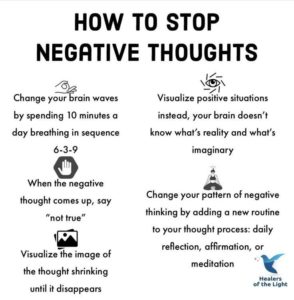
“It takes sunshine and rain to make a rainbow. There would be no rainbows without sunshine and rain.”
– Roy T. Bennett
Reach us for your recruitment needs at Hand Phone: +91 7795547089 or Email us at team@bssrecruit.com.
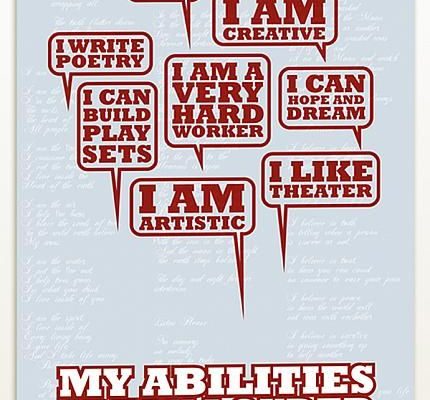
The ten hidden benefits of hiring employees with a disability
The ten hidden benefits of hiring employees with a disability
“Employers have recognised for some time that it’s smart business to have a diverse workforce – one in which many views are represented, and everyone’s talents are valued. Well, disability is part of diversity.”
— Thomas Perez
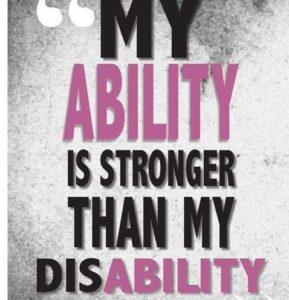
Gone are the days’ when People with disabilities have long been excluded from the workspace based on low expectations, and preconceived believes about their abilities. But now a huge difference happened in the last decade as a lot of new doors opened for disabled ones. There has been a huge increase in conversation and activism concerning fair representation and opportunity for people with disabilities in the workforce. As a result, the working world has changed for the better.
hiring employees with a disability is not only the fair thing to do but also benefits the business. In this blog, we got covered ten hidden advantages of hiring disabled employees. Read further to know them.
“People with disabilities deserve the chance to build a life for themselves in the communities which they choose to live.”
— Barack Obama
Benefits of hiring employees with a disability
- Increased productivity
Businesses that actively seek to employ people with disabilities outperform companies that do not. Disabled employees are loyal, trustworthy, and hardworking. They are focused and highly motivated under the right working conditions. It is also proven that they have a lower rate of absenteeism. Other benefits of hiring a disabled person are they often try to make up for their negatives by offering greater efforts. All these qualities let them work to their full potential, increasing productivity levels in any business.
- Reduced Turnover
Disable workers are loyal and are less likely to change their job, position, or post regularly. They prefer doing their works efficiently with minimal complaints from their employers. Companies hiring workers with disabilities experience superior retention rates, thereby reducing the high cost of turnover.
- Diversity at the Workplace
Diversity is the key to a profitable business firm. A diverse workforce makes sure businesses have a talented pool of candidates who can handle different types of workloads. Hiring disabled workers also provide a different kind of diversity. Though they lack some physical abilities, they make it up with extremely high mental abilities that others can only imagine. Also, workers who aren’t disabled can learn their ways of accomplishing different tasks and solving problems.
- Larger Talent Pool
First of all, people with disabilities are as efficient as anyone else. Sometimes, finding the perfect candidate may seem impossible. Including people with disabilities during the hiring process widen your talent pool so you can find the ideal candidate. Qualified disabled people represent the untapped applicant pool for employers. It’s not hard to guess how hard they had to work to reach such a capable level. Hiring a good, hard-working employee will undoubtedly pay off.
- Fewer Work-related Accidents
Disabled individuals are more conscious of safety. In other words, disabled employees are more careful at the workspace, exhibiting a remarkably higher performance than their colleagues without disability in the area of safety. Hiring individuals with disabilities reduce work-related injuries/deaths, which in turn avoids litigation.
“Continuous effort – not strength or intelligence – is the key to unlocking your potential.”
— Winston Churchill
- Innovation through Creative Thinking
Disabled individuals face many challenges daily. So they are used to finding solutions that need an open mind, creativity, and flexibility. This problem-solving skills and creative way of thinking can benefit the business through innovation.
- Improved Image
Customers are more attracted to firms who show that their workforce reflects the community as a whole. The benefits of recruiting people with disabilities are that it creates a positive mindset in society and demonstrates a company’s commitment to equality. It makes a business more attractive to prospective customers, employees, and even business associates. Also, evidence of inclusion is often taken into account when awarding tenders and contracts.
- Added Benefits in Legal Issues
Having employees with disabilities in your workforce can help prevent some legal issues for your company, especially in cases related to discrimination. It reduces the risk of a lawsuit, which could otherwise tarnish your company’s reputation or lead to huge financial losses.
- Increased Market Share
Disabled customers, as well as their friends, family members, and associates, represent a broad market segment. They just like to buy goods and services from companies that meet their needs the best. Disabled employees have additional insight into what this market segment needs. Disabled employees will help you tailor your products or services better. It allows you to best satisfy the needs of customers with disabilities, giving you an edge over your competitors.
- Tax Benefits
Other benefits of hiring disabled workers are financial incentives. Employers are required to make reasonable adjustments to accommodate employees with disabilities. The cost of making such adjustments like purchasing adaptive equipment, having a barrier-free environment, preparing ramps, and qualify for tax relief as a business expense. Also, government organisations often offer funds for hiring disabled people. Employers should take benefits of such opportunities to lower the financial load of their firm as well as enhance ways of gathering funds, especially for small businesses.
People with disabilities can bring success, diversity and enrich motivation in the workplace. But still, they are fighting against decades of discrimination and stigma. More companies are seeing the advantages of fully inclusive hiring, but there is still a great deal of work to be done.

“We know that equality of individual ability has never existed and never will, but we do insist that equality of opportunity still must be sought.”
— Franklin D. Roosevelt
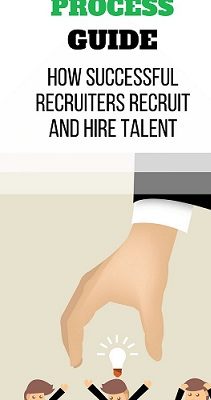
What makes hiring managers use a recruitment firm again?
What makes hiring managers use a recruitment firm again?
Recruitment firms necessity for hiring needs in a concern

“Do not hire a man who does your work for money, but him who does it for the love of it.”
— Henry David Thoreau
We all know that the main purpose of a recruitment agency is to assist job seekers in finding new chairs while helping companies find the perfect person for their open positions. Unfortunately, very few people realise there are a lot of other benefits that come with using a recruitment agency. Countless organisations are now turning to recruitment agencies as partnering with them can highly beneficial not only to hiring managers but to the company as a whole.
Recruiters may appear intimidating, but they genuinely want the best for both candidates and the company. Here are some of the major reasons why organisations are now developing closer relationships with recruitment firms.
“A modern recruiter is one who is targeted, builds relationships and knows how to not only find candidates but also get them to respond!”
— Stacy Donovan Zapar
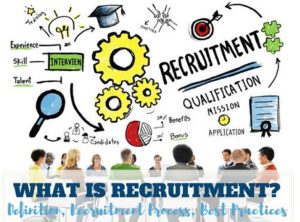
Five reasons why organisations are developing closer relationships with recruitment firms
- Faster hiring
By hiring a recruitment firm, you can fill your open positions within a shorter period. We find skilled candidates much faster than you can. Using a vast talent pool in our database, a network of connections to leverage, and access to expensive systems, we locate people with those hard to find skills you are looking for. So, it means hiring recruiters need not spend their valuable time to interview the wrong candidates. All the candidates hiring firm chooses for you are those who perfectly suit the norm of your job role. All of this assist you shorten your time to hire!
- High-quality candidates
A recruitment firm has a large talent pool of pre-screened and referenced candidates. We deal with candidates daily, and we are experts at interviewing, which increases your ability to meet with high-quality candidates. Through best-practice methods, we understand both our candidate needs and your requirements to make a great match. It means you are only meeting with candidates that have been already carefully assessed and interviewed by us.
- Knowledge of the market
We have detailed conversations with both client and candidates, which help us to gain quite a bit of understanding about the sector they work in. A good recruiter can also able to provide you with valuable insight and sage advice. It is a significant part of our job. When you use a recruitment firm you get access to the knowledge of salary rates, career expectations, available skill sets, current hiring complexities, and even market trends of a particular job, you may otherwise have never known about.
- Focus on serving the client
Most of the process we do happen before the payment arrives from our potential client. We will not charge fees for the work done if no candidate gets placed. It means that we come up with the best-skilled candidates for your open roles – those who are genuinely interested in your job.
All the best recruitment agencies also offer a guarantee period for the candidates placed in the client’s company. It means that we ensure if your new hire is terminated or leaves the job before a certain period, we will give you a full refund or find a new replacement candidate for no extra charge. The guarantee period is usually three to six months.
- Potential passive candidates
Passive candidates are the ones who are not seeking for a job currently. However, most of them may open to considering new opportunities. There is a higher chance for passive candidates to accept an offer if they get something exciting or better than their current job. Executive recruiters sense where these passive candidates are and how to present such opportunities to them. Because we live and breathe recruiting, we have the time to locate and reach out to passive candidates in a way probably not possible for your team.
The points listed above are the various reasons, most of the organisations partner with a highly-experienced recruiting firm to spot the employees they need. If you also have a prominent position to fill, or you want to stay more in tune with industry developments, align yourself with one of the top recruitment firms. Let us work together to make your company hit the ultimate success.
As a leading recruitment agency in India, Bangalore Secretary Services support careers in one of two ways:
- We help you find the right opportunity when the time is right.
- We help you recruit top talent for the critical needs of organizations.
“The secret of my success is that we have gone to exceptional lengths to hire the best people in the world.”
— Steve Jobs

Pre-employment background checks – how to sharpen your recruitment
Here is what I know about pre-employment background checks and how they can sharpen your recruitment process.

“We can never fall short when it comes to recruiting, hiring, maintaining and growing our workforce. It is the employees who make our organization’s success a reality.”
― Vern Dosch, Wired Differently
Recruitment is one of the crucial stages a company goes through to find the right fit candidates for their business. When they enlist new workers into the workforce, they should ensure they the candidates have the qualification and integrity needed to do the job. Professional employees work with a company for a long time and continuously deliver great work that positively impacts the business.
It is the reason background check is considered an imperative pre-employment screening step before making a hiring decision.
Background checks offer plenty of benefits to employers, which may include:
- Hiring professionally talented candidates.
- You can see less employee turnover and related expenses.
- You can limit exposure to claims of negligent hiring practices.
Continue reading the article and find out what are pre-employment background checks and why is it essential in the workplace.
Hire right, because the penalties of hiring wrong are huge.
― Ray Dalio
What is a pre-employment background check?
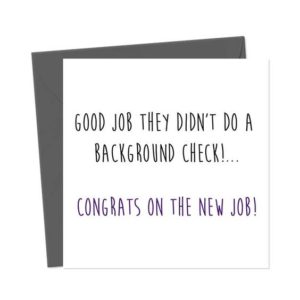
A crucial part of the recruitment process, pre-employment background involves delving into the history of candidates to get a clear idea of their abilities and employment performance.
Why pre-employment background check is essential
- It ensures that you have made the right decision
It is evident that you want your company to hit success, and that is the reason you need the best employees. If you want to ensure that you have hired the right person, then running a background check is as crucial. It helps you to catch out whether a candidate is suitable for a particular role, and they possess the required qualifications and skills.
It provides you with a full picture of your applicant and protects you from the potential risk of hiring an under-qualified staff, which can get you more losses and liabilities. It can affect the profit and goodwill of your company and can damage your brand’s reputation. It is the reason recruitment processes are usually vigorous and detailed as firms always look to hire the best.
- It helps identify the criminal history
The primary reason most employers run pre-employment background is to check is to whether there are any criminal convictions in an applicant’s past. Knowing the criminal history of the candidate, the employer can make a final decision.
Sometimes, these criminal charges put forward someone as dangerous, unreliable, untrustworthy, or otherwise not suitable for hiring. Other times, the charges may be a minor one, out of date, or irrelevant to the job at hand. Either way, an employer deserves to have this information to wise hiring decision to keep employees and customers safe.
- Helps to find dishonesty
The performance a job seeker put on in an interview will be in a way that a hiring manager wants to see. So, there is a chance of dishonesty on their application or resume. It can be making up work histories, embellishing job responsible or titles or changing employment dates. If you made a call to the previous employer, it would make sure the information on the resume matches up with the truth. If it doesn’t, you know you have dishonest applicant on your hands.
- It provides mental peace
If you verify the pre-employment background check of the candidate, you will never want to wonder about whether you can trust your employee or not. It can help you dodge common worries about the criminal history, dishonesty or anything about the person. So, you will surely get the peace of mind you need to run your business efficiently.
Spending a few moments to go through your applicant’s history will help you predict the future behaviour of the employ. So, if you want to make the informed choice, you need to have an accurate screening process, and that is only possible with a thorough background check on each applicant.
So, the choice is yours. Either you compromise your workplace safety or go through the stressful employment screening process again. It is best to pull out an applicant’s history to make smart decisions. It is the best approach for you!
Acquiring the right talent is the most important key to growth… Hiring was- and still is- the most important thing we do.
― Marc Bennioff
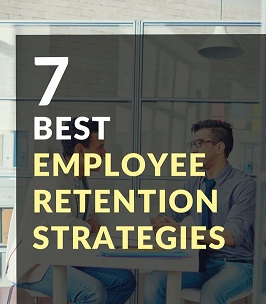
What to do about improving Employee Retention before it’s too late
Employee Retention
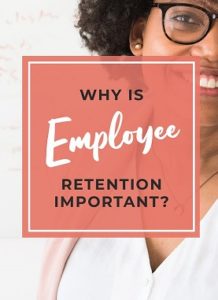
Employee Retention is the mantra for an emplyer to his goal towrds his sucess.
“The way your employees feel will be the way your customers will feel. And if your employees don’t feel valued, neither will your customers.”
— Sybil F. Stershic, Taking Care of the People Who Matter Most: A Guide to Employee-Customer Care
Employees are the central pillar of an organization, the most valuable asset. But, as an employer, if you aren’t doing your part to make them feel valued, there is a higher chance for them to decide to quit the job before making it to the half-year mark! This kind of turnover is costly. Some may cost an employer double an employee’s salary to replace them when they quit. It might affect other employees and trigger negativity at work.
Then how do you win the employee retention battle? How do you keep yourselves away from losing your employees in this kind of job market? To keep your golden employees working for you, consider trying the employee retention strategies given below that are right for your company.
“Always treat your employees exactly as you want them to treat your best customers.”
— Stephen R. Covey
Strategies that help improve employee retention
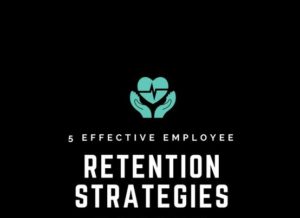
- Pay your employees well
Salary is one of the significant factor employees typically consider as the primary motivation to come to work. If an employee feels that he works harder than another employee who receives a higher rate of compensation, he may leave for a higher paying opportunity. Employees often find they can enjoy a ten to twenty per cent salary increase by merely switching from one company to the next, which makes jumping ship attractive. Highly-paid employees tend to be more motivated to remain in their jobs. So, pay your employees right.
- Hire the right employees
Make sure your new hire isn’t a bad fit for your business. Pay close attention to the signs a job-hopper may have when you interview a candidate. While there is nothing wrong with someone switching jobs if it provides career advancement. So, look for someone interested in growing with your company rather than getting experience to jump somewhere else.
- Reduce employee pain
Never expect your employees to function like robots. When the work and life balance of an employee is out of whack, there’s a pain. Your employee starts feeling frustrated about the tremendous amount of work and feels like he pays out most of his life working instead of living. The job becomes a bad guy for him.
- Become a leader not a boss
A good employer is a good leader. And a good leader can hold a good position in employees mind. You should become an ideal leader, not a bad boss, to improve employee retention. Here is how a leader acts to his employees.
- An ideal employer let employees know where the company headed to.
- He handles the challenges, which can offload stress into the employees.
- A good leader considers employees as the most critical asset.
- He makes employees feel confident about their ability to lead them to a better position in the industry.
Here is how your leadership sprinkle the seeds motivation in your employees.
- It will grow their belief in you
- They will come out of their comfort zone and get ready to undertake even tricky task for your company.
- Help seeing failure as a learning opportunity.
- Encourage a growth-oriented mindset.
As a leader, you should have a job plan and provide regular feedback on an employee’s performance. It will help your employees fully aware of their job duties and how they’re doing in performing them. If an employee feels bewildered about his role in your firm, he’s more likely to feel disgruntled and begin searching for something else.
- Employee engagement impacts retention.
Increasing employee engagement can help improve retention. It can also provide the benefits of better productivity and higher employee satisfaction. Focus on your company culture and take proactive steps to promote engagement, especially among your top talent.
You should be helping your workforce to grow and expand, not only get better at what they already do. If your training centres rely entirely on increasing performance in a current role, you’re missing the boat. Good employees always want the opportunity to advance, not just maintain momentum.
Consider:
- Conduct training programs, so that employees have a broad skill set, not just a narrow set limited to their specific job.
- Mentorship programs that encourage the mentee to become a mentor.
- Allow the employees to climb the leadership ladder so that they know what they need to do to move up.
Employee Retention is a real issue that should address, especially if you already have high turnover rates. Improving retention rates doesn’t have to be strenuous. Be a positive role model and connect with your employees directly. If help you more likely to understand what they need to continue to help your business thrive.
“Employees engage with employers and brands when they get treated as humans worthy of respect.”
— Meghan M. Biro, Your Employees are Engaged…REALLY?, Forbes
End of content
No more pages to load




